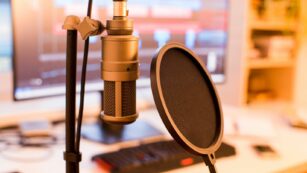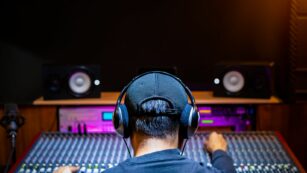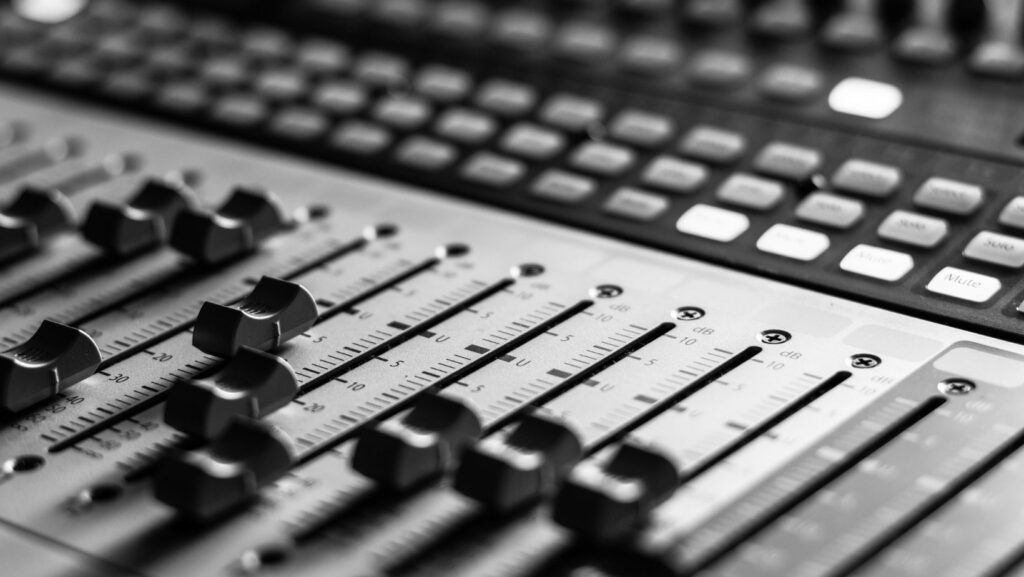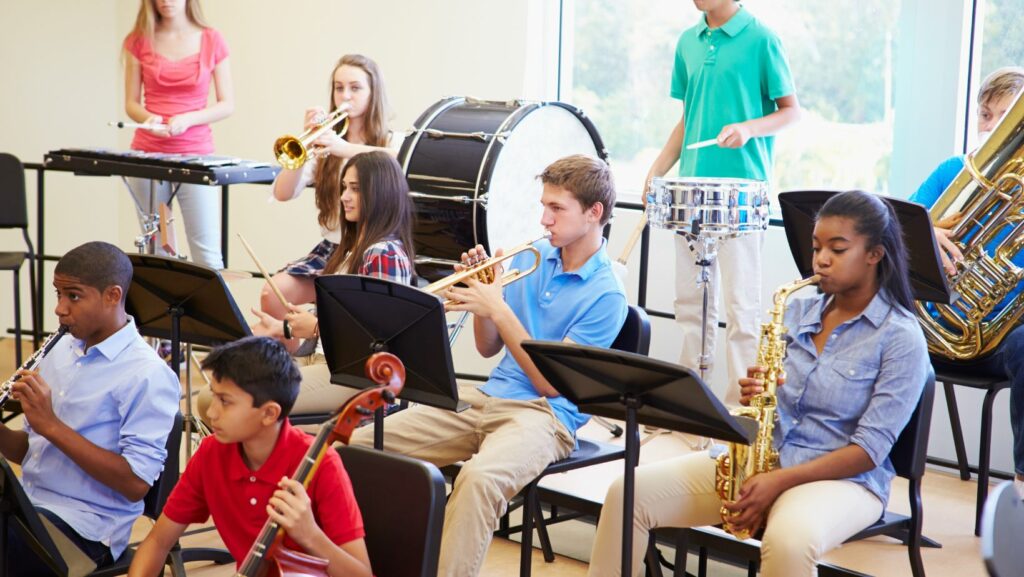Stepping into the world of music production? It’s a thrilling journey, but one that requires the right tools. From microphones to mixers, synthesizers to software, the landscape of music production equipment is vast and varied.
Music Production Equipment
Delving deeper into essential music production equipment, it’s paramount to focus on Studio Monitors, Audio Interfaces, and Microphones.
Studio Monitors
When it comes to music production, Studio Monitors hold a pivotal role. These specialized speakers offer an accurate, uncolored representation of the audio output, assisting the producer to make informed mixing decisions. Unlike consumer speakers which may enhance certain frequencies for a more pleasant listening experience, Studio Monitors strive for total sonic neutrality. Companies renowned for their quality studio monitors include Yamaha, KRK, and Adam Audio; each offers a different tonal character, so sampling multiple products may prove beneficial.
Audio Interfaces
 The Audio Interface acts as the control hub for your music production setup. This piece of equipment is responsible for converting the analog sound signals into digital format for computer processing, and then converting the processed digital signals back into analog for playback through monitors or headphones. High-quality audio interfaces often provide a wider range of input/output options, clearer sound quality and lower latency, features essential for a seamless production experience. Noteworthy brands in this category include Focusrite, PreSonus, and Universal Audio.
The Audio Interface acts as the control hub for your music production setup. This piece of equipment is responsible for converting the analog sound signals into digital format for computer processing, and then converting the processed digital signals back into analog for playback through monitors or headphones. High-quality audio interfaces often provide a wider range of input/output options, clearer sound quality and lower latency, features essential for a seamless production experience. Noteworthy brands in this category include Focusrite, PreSonus, and Universal Audio.
Microphones
One cannot underestimate the role of Microphones in a robust music production equipment arsenal. Each microphone brings its distinct audio capture characteristics to the table, influencing the sound output considerably. Microphones can be broadly categorized into two types: Condenser Microphones, perfect for capturing vocals and high-frequency instruments due to their high sensitivity, and Dynamic Microphones, excellent for high-volume sources like drums due to their robust construction and capability to handle loud sound sources. Groundbreaking brands in this sector are Neumann, Shure, and Audio-Technica.
Choosing the Right Keyboard and Controllers
Following the analysis of Studio Monitors, Audio Interfaces, and Microphones, this section explores another vital element of music production equipment – Keyboards and Controllers. As a central component in the music creation process, making the right selection is paramount. It revolves around two crucial pieces of gear: MIDI Controllers and Synthesizers.
MIDI Controllers
 Musical Instrument Digital Interface (MIDI) controllers form the backbone of modern music production. They allow producers to play virtual instruments, adjust mix settings, and automate parameters within the digital audio workstation (DAW).
Musical Instrument Digital Interface (MIDI) controllers form the backbone of modern music production. They allow producers to play virtual instruments, adjust mix settings, and automate parameters within the digital audio workstation (DAW).
Different types of MIDI controllers serve varying purposes. For instance, pad controllers, like Akai’s Professional MPC X, offer a rhythmic and tactile approach, ideal for drum programming and sample triggering.
Synthesizers
Synthesizers are powerful music production tools that generate audio signals – they create everything from thick bass lines to ethereal pads. These versatile machines come in various forms, including hardware, software, analog, digital, modular, and semi-modular variations.
Hardware synthesizers, like the Moog Subsequent 37, use physical components to create and shape sounds. Meanwhile, digital synth software, such as Native Instruments’ Massive, employs mathematical algorithms to generate audio. Both analog and digital synths bring unique sound characteristics valuable in a music producer’s arsenal.
Software for Music Production
 Expanding the arsenal of music production equipment, specific software tools prove pivotal. These applications, typically known as Digital Audio Workstations (DAWs), function as vital platforms for recording, mixing, and mastering tracks. Examples include Ableton Live, Logic Pro, and FL Studio, renowned for their advanced features and flexible workspaces. This software, paired with plugins like virtual instruments and effects processors, augments the capabilities of the production setup, offering infinite sonic possibilities. The choice of DAWs and plugins aligns with the producer’s creative vision, technical skill level, and budget constraints.
Expanding the arsenal of music production equipment, specific software tools prove pivotal. These applications, typically known as Digital Audio Workstations (DAWs), function as vital platforms for recording, mixing, and mastering tracks. Examples include Ableton Live, Logic Pro, and FL Studio, renowned for their advanced features and flexible workspaces. This software, paired with plugins like virtual instruments and effects processors, augments the capabilities of the production setup, offering infinite sonic possibilities. The choice of DAWs and plugins aligns with the producer’s creative vision, technical skill level, and budget constraints.
Recording Accessories
It’s clear that the world of music production is rich in equipment options, each bringing its unique flair to the creative process. From the fundamental trio of Studio Monitors, Audio Interfaces, and Microphones to the versatile Keyboards and Controllers, the choices are vast. MIDI Controllers and Synthesizers, with their diverse functionalities and sound generation capabilities, open doors to new sonic landscapes. The role of software tools can’t be understated either. DAWs like Ableton Live, Logic Pro, and FL Studio, coupled with plugins, offer a comprehensive environment for recording, mixing, and mastering tracks.



